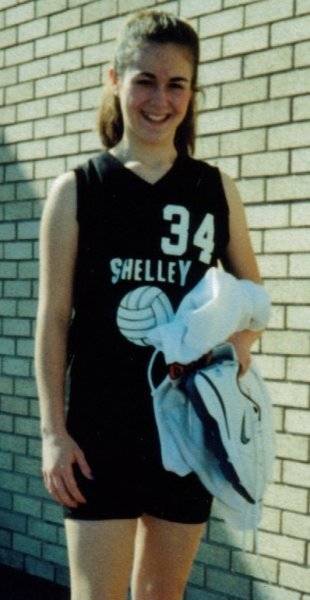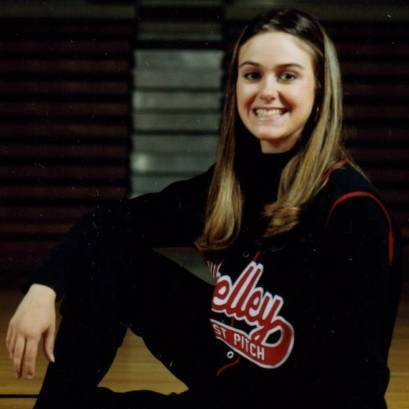Autism Diaries: Suicide Prevention While Being Autistic

It was the last class of the day for seventh-grade me, and I was counting down the minutes until the bell rang because I didn’t know how else to escape what was happening to me. Two female classmates, one of whom I considered a friend, had cornered me in the classroom while the teacher was out for a moment. I was wearing black slacks that day that gave these girls an invitation they couldn’t resist – kicking me in the shins and thighs with their big clunking Soda-brand shoes to leave dirty footprints on my black pants. The two laughed in tandem while I begged them to stop. The pain in my shins. The humiliation that this was happening in front of the class. The evidence of my assault was my dirtied pants. The bell finally rang and I bolted. I went home with bruises on my shins and a familiar stabbing pain in my heart.
Bullying, harassment, discrimination and constant microaggressions are par for the course for most people on the spectrum. And it doesn’t end with leaving high school. This treatment continues into adulthood with family, friends, professionals, colleagues, neighbors, community organizations and medical providers for many Autistic people – yes, even by those with good intentions. Good intentions do not always equal good outcomes for Autistic people.
The constant fight to exist in the world as a neurotype that is not the accepted norm is emotionally exhausting and mentally devastating. And while no one knew I was Autistic growing up – including myself - the word for it didn’t matter. I was clearly different than my peers and that was all that mattered. Living differently in the world made me a target, including with the adults in my life.
In the fifth grade I had the equivalent of Ms. Trunchbull from Matilda as my teacher. All 95 pounds of her scared the tar out of me. By the time I got into the fifth grade, my social struggles were apparent to me, and it translated into poor sleeping, depression and low self-esteem. My grades plummeted. More than once my Ms. Trunchbull informed me of how lazy and stupid I was, and yes, she used those exact words. This furthered my depression and hatred of school and contributed to the authority complex I have to this day. It is hard to express how upsetting it is to have an adult that was entrusted with my care violate me in the ways she did. Her criticism was relentless. If I was late for school, she let me know what she thought about it. Once I felt brave and raised my hand when she asked the class how to spell ‘Hawaii’. When she called on me I knew I’d made a mistake. Her terrifying glare made me so nervous I couldn’t even get a sound out. She told me I shouldn’t presume to be smart and know everything.
I could go on with such anecdotes, including into my adulthood, but I think I’ve made my point. The world is not accepting or accommodating of people like me. This is why Autistic people have high rates of depression, anxiety, PTSD, suicidal ideation and successful suicide attempts. We don’t inherently hate ourselves because we are Autistic. We learn to hate ourselves because that is what the world constantly tells us--both implicitly and explicitly.
I wake up in the wee hours of the morning after having a string of nightmares that my subconscious drug up from the depths of my memory. The nightmares are always the same: a real situation that happened to me because I’m Autistic, that I’m now realizing was abusive and not ok. My PTSD goes through cycles, but never completely leaves me--partly because it is continually being added to with new experiences. I now live in the world as an Autistic and traumatized person.
I’ve struggled with thoughts of death, suicidal ideation and severe depression since the tenth grade. Having these things start early in childhood for Autistic people is common. Someone dear to me who is Autistic attempted suicide in the fifth grade. But despite my significant struggles, through it all, up until a few years ago, no one ever asked me how I was doing or saw the signs of my struggle and cared enough to talk to me about it. And as an Autistic child, I did not know how to explain it, have the language to do so, or know what to ask about for getting help. I suffered in silence for 15 years.

I cannot emphasize enough that this is the norm for autistic people. I have spent hours and hours talking with other autistic people from around the world, and our stories are the same. Suicide prevention month does little to educate the public about the specific struggles my community faces and why we end our lives. We may not be able to ‘reach out’. We may not have the language or self-confidence to explain our mental health. We may not even realize we are depressed since it is our MO at this point. We just live in constant depressive states. Most of all, professionals, martyr parents and organizations continue to tell the world how broken, annoying and difficult autistic people are. Unless we take on the mantle of masking with neurotypical standards for behavior, we aren’t worthy of dignity, safety, and community.
My plea to the neurotypical world this suicide prevention month is this: autistic people are who they are. We don’t need to be trained like dogs for compliance to make your lives easier while it ends up taking ours away. Accept us now. How we are now. Stop trying to change us. Stop telling us the abuse we receive is our fault because we won’t comply or find your standards unfeasible. Instead, ask us how we are feeling and always validate it. Tell us it is ok to not be ok. And when we really tell you how we are doing, don’t violate our trust and infantilize us by calling police, telling parents or others we’ve asked you not to. We deserve self-determination just as much as anyone else. Tell us you are glad we are part of your life and you value us for who we are.
My plea to my fellow autistics: I see you. I feel you. I know the struggle. You are valid and I’m rooting for you. You are not a burden. Your unique perspective makes this world a better place. You can never be replaced. Autistic lives are worth living, and that includes yours.

